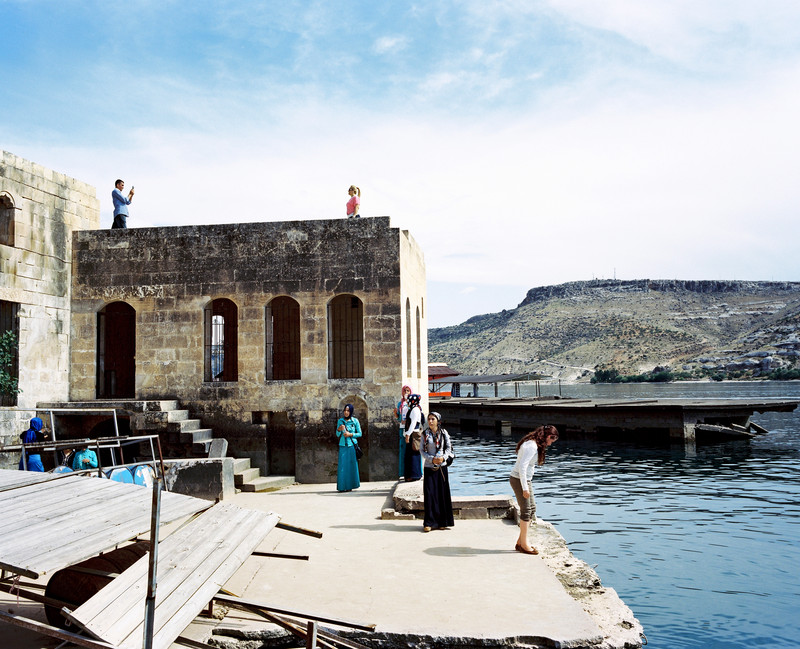The town of Hasankeyf in southeast Turkey is the only place in the world that has met nine out of ten criteria for Unesco’s world heritage sites. However, the Turkish government has made no effort to bid for its inclusion in the coveted world heritage list, or to promote tourism in the ancient town located along the Tigris River. Any effort to do so would harm the development of the Ilisu dam — a state project that is supposed to entirely flood Hasankeyf, along with 52 other villages and 15 nearby towns, by 2018.
Already, a number of towns and villages located on the Euphrates River have been flooded as part of Turkey’s controversial Guneydogu Anadolu Projesi — or Southeastern Anatolia Project. GAP, as it is known, is currently Ankara’s most significant territory planning project, involving eight provinces, and will irrigate 1.7 million dry hectares of earth from 22 different dams all fed by water from the Tigris and the Euphrates rivers.
The Ilisu dam will cause approximately 400 kilometers of the Tigris River to disappear and force the relocation of about 80,000 people, dramatically changing the ecosystem of the area.
Situated on the edge of the Tigris, the €1.2 billion dam will become the second largest reservoir of water and the fourth hydro electrical power station in Turkey, with an annual production of 3.8 billion kW/h when completed in 2017.
Construction began in the spring of 2008 but was interrupted a year later when European investors decided to withdraw from the project for environmental reasons and because of the displacement of the local population. Yet, the Turkish government decided to carry on with construction of the dam, with support from local banks.
Both residents of southeastern Turkey and international observers continue to question the Ilisu dam, which will destroy a unique historical site, where Assyrians, Roman, and Ottoman monuments exist in close proximity. Yet the Turkish government maintains that the project will aid the impoverished region, allowing the creation of 10,000 jobs and the development of local farming and agriculture.
Along with environmental and social risks, the geopolitical impact of the dam cannot be ignored either. The development of Ilisu has been severely criticized by neighboring Iraq and Syria, who accuse Turkey of appropriating waters of two rivers that connect to their territories, which are already hit by arid conditions and drought.
In the absence of a clear water-sharing agreement with Iraq and Syria, the building of the dam constitutes a violation of international law, according to Nature Iraq, a Sulaymaniyah-based NGO that advocates for Hasankeyf residents.
But, amid the regional strife, the Turkish government appears to be moving ahead with the project regardless of the impact on the neighboring countries.
click to view the complete set of images in the archive





















